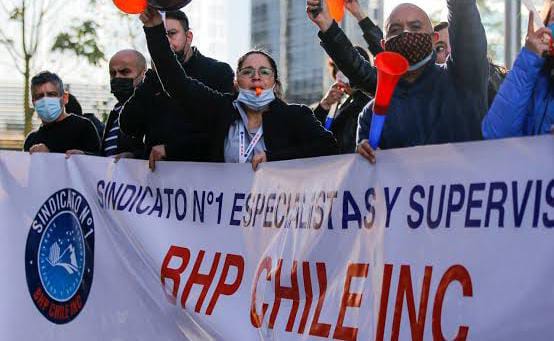By Lucy Adautin
Workers at Chile’s largest copper mine have gone on strike following a breakdown in pay negotiations with Australian resource giant BHP, creating uncertainty in the global copper market on Wednesday.
The Escondida mine, located in northern Chile, produces about five percent of the world’s copper, a metal crucial for everything from electrical wiring to rechargeable batteries. Analysts suggest that the immediate impact of the strike may be cushioned by a global surplus in copper stockpiles, though concerns remain that a prolonged strike could eventually disrupt supply.
BHP, which owns a majority stake in the expansive open-pit mine, stated that operations would be scaled back as non-union staff implement contingency plans. In 2017, a similar strike at Escondida halted production for 44 days, costing BHP $740 million and reducing Chile’s annual economic output by 1.3 percent.
This year, buoyed by strong global copper prices earlier, union representatives sought a larger share of profits for the 2,400 workers they reportedly represent at Escondida. The union initiated what it termed a “legal strike” over unmet demands, including higher bonuses, shorter workdays, and compensation based on years of service at the mine.
Reports have that BHP had offered a one-time bonus of nearly $29,000, falling short of the union’s demand of $36,000.
While copper prices were strong in May this year, they have since declined, with significant stockpiles accumulating in Chinese depots and elsewhere.
According to Ole Hansen, a commodity analyst at Saxo Markets, “Total stocks at warehouses monitored by the exchanges in London and Shanghai have risen to levels not seen since the depth of the pandemic back in early 2020.”
He noted that the increasing inventories signal a mismatch between supply and demand, largely due to weak demand.
As a result of the strike, BHP’s share price in Sydney dropped by around one percent by noon on Wednesday.
BHP, often referred to as the “Big Australian,” has been actively seeking new sources of copper. Earlier this year, the company’s drive for expansion led to an unsuccessful attempt to take over rival Anglo American.
Copper, an electrical conductor used in wiring, a bedrock of emerging clean-energy industries and a crucial component in the manufacture of solar panels, electric vehicles, wind turbines and rechargeable batteries.
Copper prices have increased about 400 % in the past quarter of a century, and broke US$10,000 a tonne in April for the first time in two years. Global demand is expected to grow by 2.5 % a year.
The Escondida mine, meaning “hidden” in English, was named in reference to the bulging ore deposits obscured deep under the barren surface of Chile’s northern Atacama Desert.
BHP owns just under 60 % of mine, alongside minority partners Rio Tinto and Japan’s JECO Corp.
Chile accounts for a quarter of world’s copper, followed by Peru, China, and the Democratic Republic of Congo.




































